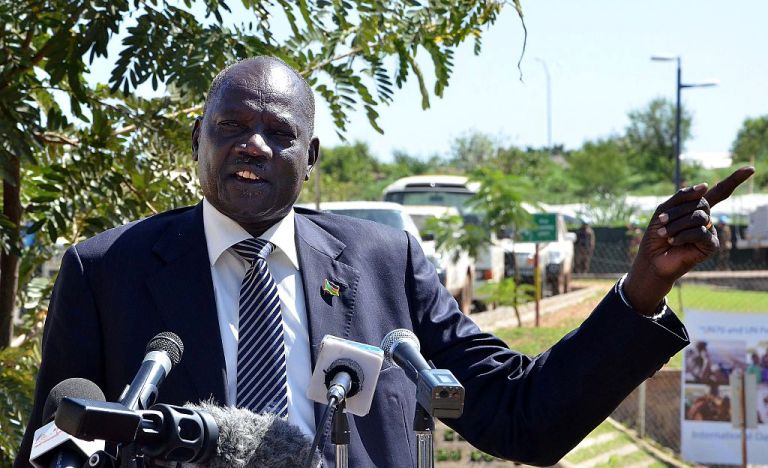South Sudan denies using oil money to fund ongoing civil war

March 6, 2018 (JUBA) – The South Sudanese government has rejected claims that the top leadership diverted millions of dollars from the national oil company to finance the ongoing civil war.
The campaign group, Global Witness, in a new investigative report, implicated the leadership in South Sudan is using oil revenues from Nile Petroleum Corporation – NilePet, the national Oil & Gas Corporation of South Sudan to fuel the conflict, now in its fifth year.
But South Sudan’s information minister, Michael Makuei said the report from Global Witness was simply intended to damage the image of the president and the government of the war-torn nation.
“We all know that Global Witness is US-funded and America has taken an anti-government stance, and Global Witness is an anti-government organisation,” he told the BBC on Tuesday.
The report, titled “Capture on the Nile” says NilePet is under the direct control of President Salva Kiir and his cronies, and is being used to funnel millions in oil revenues to the country’s brutal security services and ethnic militias, with little oversight and accountability.
“While South Sudan’s population continues to suffer a senseless war and economic crisis of their leaders’ making, Nilepet is failing its true constituents, serving instead, the interests of a narrow canal, and being used to prolong the brutal conflict,” Michael Gibb, a campaign leader for Conflict Resources at Global Witness said.
Secret documents and first-hand testimony were relied on to unearth the dirty deals that occur within the national oil company, it stated.
In one such document, the report said, the managing director of the Nilepet received a letter requesting a payment of over $1.5 million, for expenses incurred by South Sudan’s national security services.
The letter signed by the then minister of Petroleum and Mining Stephen Dhieu Dau also made reference to an earlier communication by Lt. Gen. Akol Koor Kuc, the director general of the Internal Security Bureau (ISB), which is part of the security service.
The national oil company, however, says it operates in secrecy, and the report details how this secrecy has been used to finance military operations, arms transfers to ethnic militias, and conceal the looting of millions of dollars meant to help imports of essential goods.
South Sudan’s security forces have also been accused of atrocities in the country’s civil war, including ethnic cleansing and rape.
Nilepet has denied the allegations in the Global Witness report and its official now say the evidence collected could have been forged.
Similarly, documents reviewed in an investigation by The Sentry, an investigative initiative co-founded by George Clooney and John Prendergast, showed that South Sudan’s elite is using the country’s oil wealth to get rich and terrorize civilians.
The report details how revenues from oil resources, the country’s main resources of revenue, are used to fuel militias and ongoing atrocities, and how a small clique continues to get richer while the majority of South Sudanese suffer or flee their homes due to conflict.
Since its independence, South Sudan has relied on oil for all its incomes, a situation that has significantly compounded the ongoing political and economic instability, due to the fall in crude oil prices.
South Sudan got the lion’s share of the oil when it split from Sudan in July 2011, but it’s only export route is through Sudan, giving Khartoum leverage and leading to ongoing pricing disputes.
Oil production in South Sudan has, however, been affected by the conflict that erupted in 2013 after a political disagreement between President Salva Kiir and his then deputy, Riek Machar, triggered war.
The war in South Sudan, which has featured the use of child soldiers, rape as a weapon of war, and mass atrocities, has resulted in tens of thousands of deaths and has left over 4 million people displaced.
(ST)
